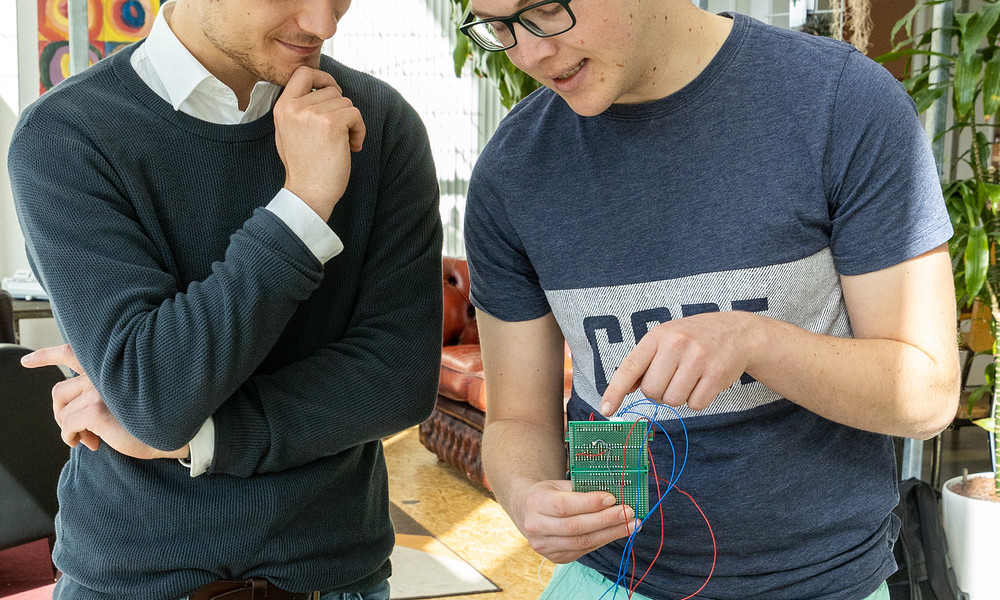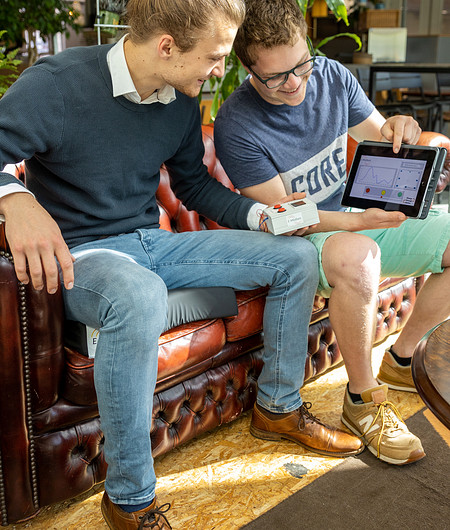'With our invention, we want to improve the lives of people with dementia'
- Student project


Frank Manting and Guus Pigge are third-year students of Sensor Technology. Together with a group of fellow students, they have recently been working on a special project: the E-motion chair.
‘The E-motion chair is a smart seat cushion for people with dementia,' Frank explains. 'The cushion detects restlessness. We want to make it so that it signals when someone is getting restless, so that the nurse can come and calm the client down.' Guus adds, 'interestingly, with the cushion you can see at what times someone becomes restless. For example, when containers are emptied or just before lunch. With these kinds of insights, you can adjust someone's personal planning by bringing the lunch a little earlier, for example, or by making sure that someone cannot hear the containers.’ Frank: 'By detecting restlessness at an early stage, we will not only improve the quality of life of the users, but we will also make it easier for the nurses.’
Festival test
The E-motion chair was tested for three days at a festival. That makes it real,' says Guus. ‘We first had visitors fill out a survey, then showed them a boring PowerPoint and then gave them an exciting assignment: sing a song out loud or do a complicated math sum. This made many people very nervous - which was reflected in the movements on the chair. By having them fill out a survey afterwards, we were able to link the movements to the restlessness they had experienced.' Frank: 'Seeing that our smart cushion really works gave us a very good feeling. We knew that we could make an impact with this.’
MOOD-Sense
The E-motion chair is part of the MOOD-Sense, a collaboration between knowledge institutions and care organizations in the northern Netherlands, including the Hanze University Groningen and the University Network Elderly Care at the UMCG. PhD student Jan Kleine Deters researches the use of sensors in care to improve the quality of life for people with dementia and he was responsible for supervising Frank and Guus. Guus said, "The semester ended, but we wanted to continue working on this project and we were allowed to. We even applied for subsidies to be able to develop the cushion further.' Frank added, 'The fact that you can improve lives with technology is the reason why I chose this study. You analyse, design and make an impact - even during your studies. That motivates me enormously. You already have one foot in the real world.’
How satisfied are you with the information on this page?